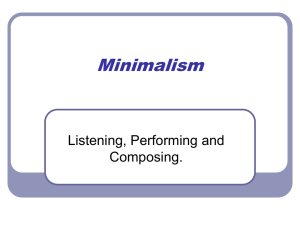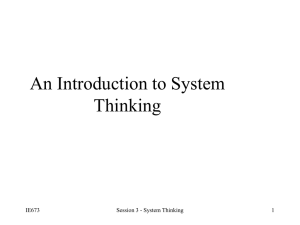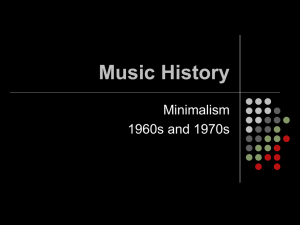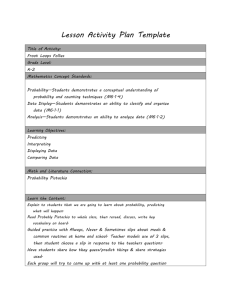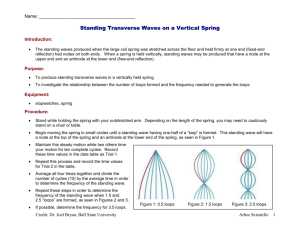Area of Study 2 Changing Directions in Western Classical Music
advertisement
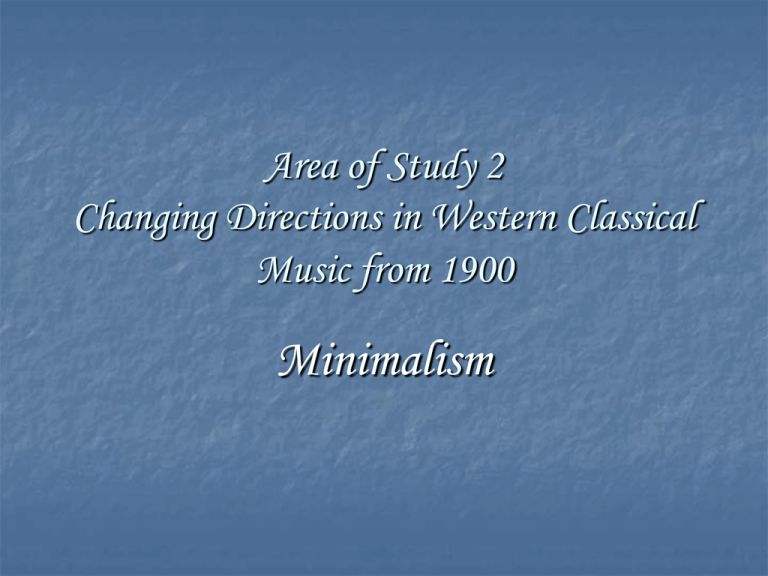
Area of Study 2 Changing Directions in Western Classical Music from 1900 Minimalism Minimalism The origins of minimalism are from the West coast of America in the 1960’s Its influences are from many different cultures Minimalist art is art with only a few lines or squares, minimalist music is music that changes only a little bit at a time Influences… Minimalism is influenced by rhythms from West Africa. The rhythm of the music can be very complicated and uses cross rhythms. Gamelan music (from Indonesia) has layered parts all playing different versions of the same tune but at different times. Minimalism is also influenced by Indian music The Music The music is made up of constantly repeating patterns called loops. The loops are short and simple and are often made out of arpeggios, broken chords and scales. The final music can be quite complicated, especially the rhythm. The harmony is built up by layering loops on top of each other. More music… There are a few ways of gradually changing the loops: 1. Notes can gradually be added or taken away. 2. The notes of the loop pattern change over time. 3. Adding or removing rests 4. Layering different-length patterns together Music Technology and Minimalism In the 1960’s composers would make their pieces using tapes and selotape! They would make loops by carefully cutting a tape so it had the bits of music they wanted and then stick the cut end together. Composers made loops out of words and other noises. The different loops could be put together using multi-tracking, they would record the loops one on top of another to create layers. Key words and info. Loops Ostinato Phase shifting (gradually separating parts from an opening rhythmic unison) Gradual changes in texture and dynamics. Tape loops (which now be done using Cubase) Addition/Subtraction Melodic and rhythmic transformation. Composers Steve Reich Terry Riley Philip Glass John Adams Finally Expressionist music was quite complicated Minimalist music is very simple Minimalism influenced club music – repetition and loops, for example Homework. Select one of the composers listed and find out about his compositions. Try to listen to one if possible and describe it.
